第103章
The income offered him was such that he had no doubt of laying aside enough for his only child, Mysie; but both were so ill-fitted for saving, he from looking into the past, she from looking into--what shall I call it? I can only think of negatives--what was neither past, present, nor future, neither material nor eternal, neither imaginative in any true sense, nor actual in any sense, that up to the present hour there was nothing in the bank, and only the money for impending needs in the house.He could not be called a man of learning; he was only a great bookworm; for his reading lay all in the nebulous regions of history.Old family records, wherever he could lay hold upon them, were his favourite dishes;old, musty books, that looked as if they knew something everybody else had forgotten, made his eyes gleam, and his white taper-fingered hand tremble with eagerness.With such a book in his grasp he saw something ever beckoning him on, a dimly precious discovery, a wonderful fact just the shape of some missing fragment in the mosaic of one of his pictures of the past.To tell the truth, however, his discoveries seldom rounded themselves into pictures, though many fragments of the minutely dissected map would find their places, whereupon he rejoiced like a mild giant refreshed with soda-water.But I have already said more about him than his place justifies; therefore, although I could gladly linger over the portrait, I will leave it.He had taught his daughter next to nothing.Being his child, he had the vague feeling that she inherited his wisdom, and that what he knew she knew.So she sat reading novels, generally trashy ones, while he knew no more of what was passing in her mind than of what the Admirable Crichton might, at the moment, be disputing with the angels.
I would not have my reader suppose that Mysie's mind was corrupted.
It was so simple and childlike, leaning to what was pure, and looking up to what was noble, that anything directly bad in the books she happened--for it was all haphazard--to read, glided over her as a black cloud may glide over a landscape, leaving it sunny as before.
I cannot therefore say, however, that she was nothing the worse.If the darkening of the sun keep the fruits of the earth from growing, the earth is surely the worse, though it be blackened by no deposit of smoke.And where good things do not grow, the wild and possibly noxious will grow more freely.There may be no harm in the yellow tanzie--there is much beauty in the red poppy; but they are not good for food.The result in Mysie's case would be this--not that she would call evil good and good evil, but that she would take the beautiful for the true and the outer shows of goodness for goodness itself--not the worst result, but bad enough, and involving an awful amount of suffering and possibly of defilement.He who thinks to climb the hill of happiness thus, will find himself floundering in the blackest bog that lies at the foot of its precipices.I say he, not she, advisedly.All will acknowledge it of the woman: it is as true of the man, though he may get out easier.Will he? I say, checking myself.I doubt it much.In the world's eye, yes; but in God's? Let the question remain unanswered.
When he had eaten his toast, and drunk his tea, apparently without any enjoyment, Mr.Lindsay rose with his book in his hand, and withdrew to his study.
He had not long left the room when Mysie was startled by a loud knock at the back door, which opened on a lane, leading along the top of the hill.But she had almost forgotten it again, when the door of the room opened, and a gentleman entered without any announcement--for Jenny had never heard of the custom.When she saw him, Mysie started from her seat, and stood in visible embarrassment.The colour went and came on her lovely face, and her eyelids grew very heavy.She had never seen the visitor before: